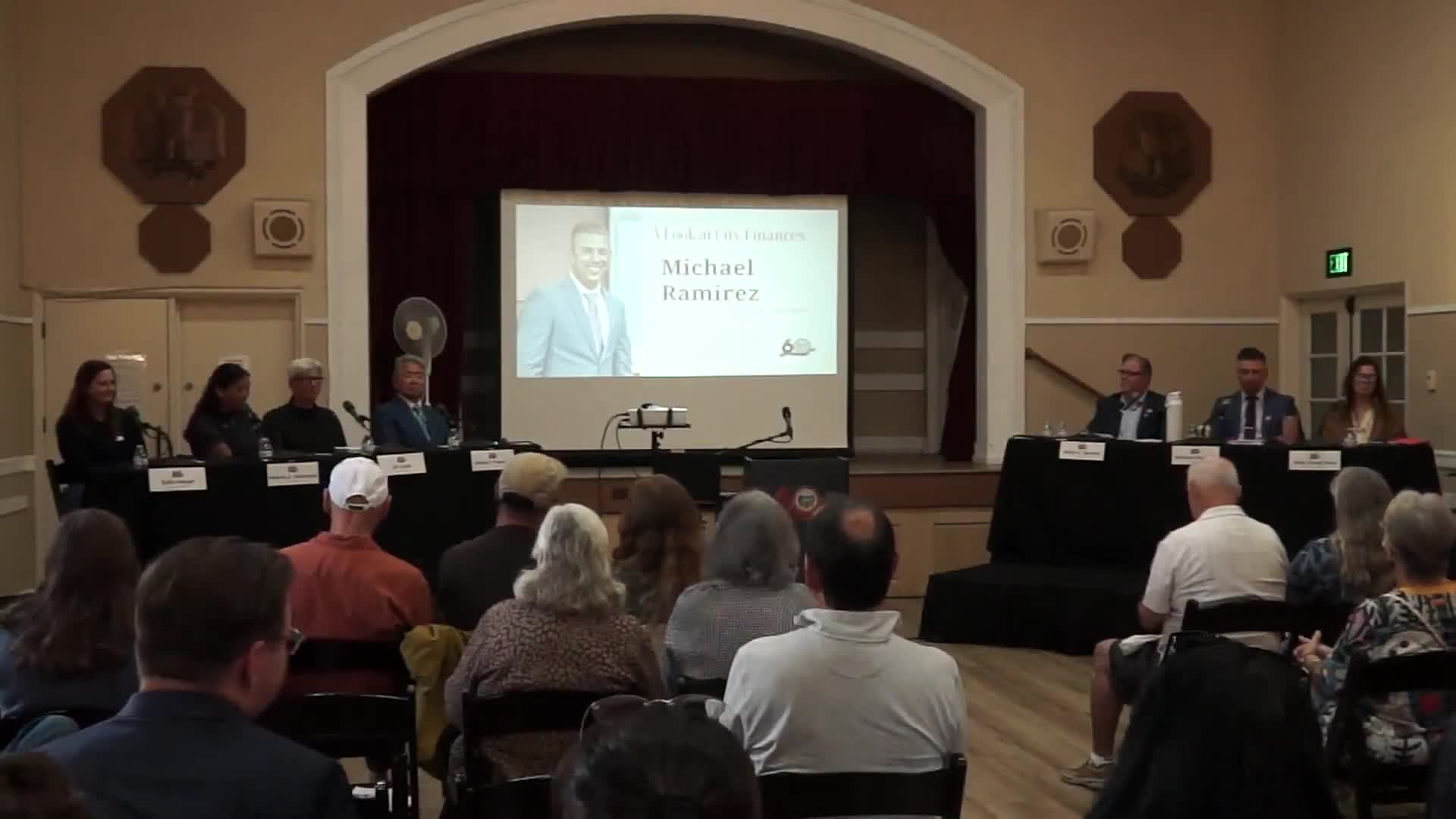Carpinteria City manager warns reserves will shrink to near zero within three years, outlines options
Get AI-powered insights, summaries, and transcripts
Subscribe
Summary
Carpinteria City Manager Michael Ramírez told residents attending the State of the City event that the city’s reserves are projected to fall below $1 million in 2026–27 and could be fully depleted by 2028 unless the council takes action.
Carpinteria City Manager Michael Ramírez told residents attending the State of the City event that the city faces an approaching shortfall and will need policy decisions to avoid steep cuts.
"As you can see, for 2026–27 we will have less than $1,000,000 and by 2028 we will have nothing available," Ramírez said as he reviewed five‑ and ten‑year fund projections. He said the city currently maintains a council policy reserve equal to about 40 percent of a defined amount — intended to cover roughly six months of operations — but that the trend of rising expenses outpacing revenue will exhaust discretionary balances if unaddressed.
Ramírez and staff described the city's revenue mix and near‑term pressures. General fund receipts were illustrated as roughly $17 million in a recent year with about $16 million in expenditures, paid largely by property tax, sales tax, and transient occupancy (hotel) taxes, plus smaller amounts from permits, fees and grants. He noted the cost of a prior pavement project has risen from about $6.5 million in an earlier estimate to roughly $7.25 million this year, and said that construction and materials inflation increases future project costs.
To respond, Ramírez presented four nonexclusive options the council and public can consider: reduce operating costs without cutting services through efficiency measures; reduce or scale back services; rely on development and new building to grow the tax base; or pursue new revenue mechanisms such as assessment districts or adjusted fees. He stressed the city is aiming to recover the true cost of some user services and has started annual updates to fees and charges to avoid infrequent, large increases.
Ramírez also explained how reliance on specific revenue streams changes risk. He pointed to jurisdictions where hotel taxes make up a very large share of general fund revenue and said Carpinteria has intentionally maintained a mix to reduce vulnerability to shocks such as a pandemic or a sudden drop in tourism. He said staff will continue to present options for council consideration and asked the public to provide input on tradeoffs.
The manager described potential operational responses already in practice, such as in‑house street sweeping, and noted some services remain more economical to contract out seasonally. He said capital investment needs remain large and that delaying projects increases costs.
There were no formal votes taken during the presentation. Ramírez invited residents to weigh in on the choice mix and to follow posted materials online for more detail.
Looking ahead, the city will present budget options to the City Council during regular meetings; staff emphasized the timeline and next steps will appear in agenda materials and the city website.
